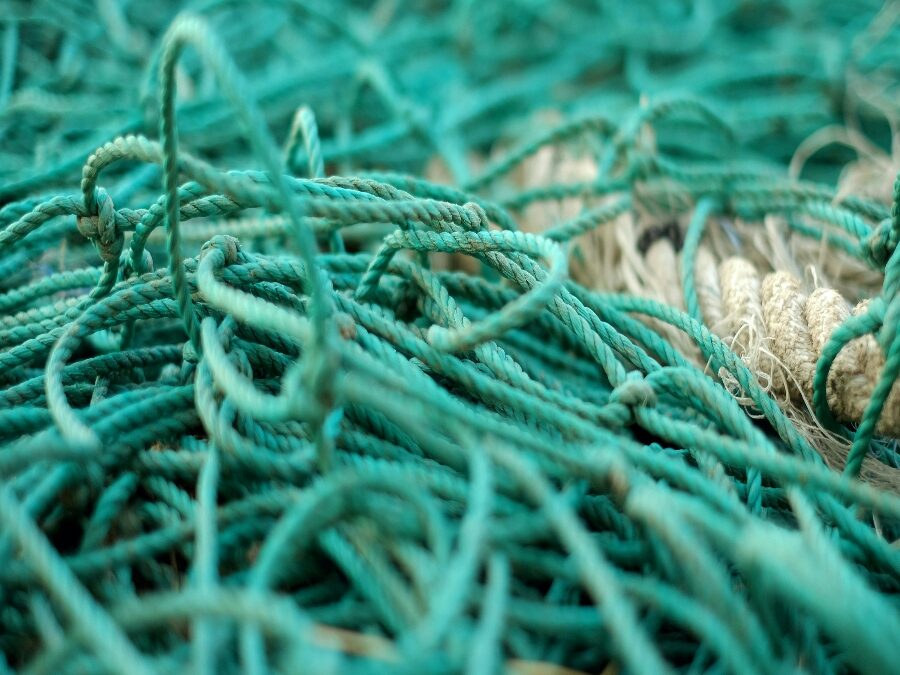
by Ross McMeekin | Dec 20, 2024 | micro
Next to me at the intersection stands a young boy, hands in jacket pockets, hair the brown of the
brittle leaves in the street gutter. Autumn. The anniversary of my younger sister’s accidental
death, by drowning—a riptide, no flotation device. I was nearby. The boy at the intersection and
I wait for the stoplight, and for a moment he glances up at me, but I’m beyond his concern. He
bobs on the balls of his feet, eyes closed. Then, presumably struck by a good memory, he grins,
oblivious of the dull power of the cars hurtling past, feet from our knees. His possible death isn’t
lost on me. Imagination saves lives by provoking fear, and the innocence of youth is a danger all
face, even bystanders. I feel the urge to grab his hand, for his safety. But I turn and see, from his
backpack, a leash held by his mother—they share a nose and buoyant curls, perhaps far more. I
smile, but she notices me pause over the tether and turns towards the street, shoulders squared,
gripping the braided rope that protects both the boy and her. Chin defiant, she braces, perhaps for the careless words of yet another critic who can’t grasp how quickly not just a body, but a mind can dash into traffic. I understand, but to speak, it would be to admit to a love that could no
longer trust another or oneself.
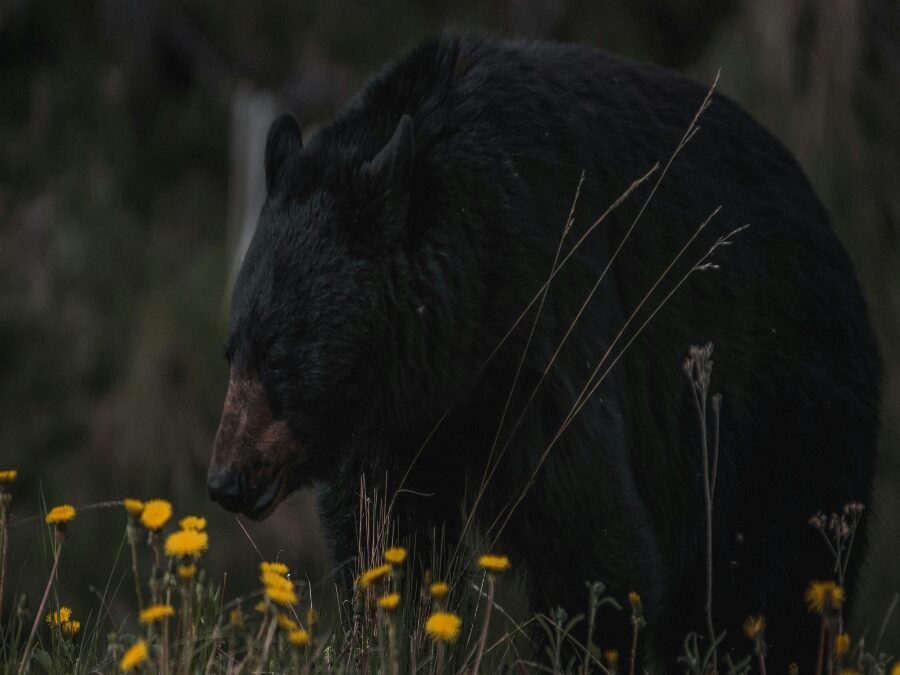
by Kristin Tenor | Dec 17, 2024 | micro
Mother Black Bear sits on her haunches under the heavy limbs of the crabapple tree in the backyard. She rubs her eyes, her long snout, and looks up at the stars and sighs as if she, too, has been awakened by the clock tick, tick, ticking.
Through an open window we talk woman to woman—where each of us says, “I” and “you,” and “my dear,” and “you know” as freely as she pleases. We commiserate over aging parents and children and cubs that are not so much children and cubs anymore and now have children and cubs of their own. Together we craft a grocery list: bread, milk, chicken, egg, chicken, egg, chicken, egg, honey (only the sweetest kind), red wine vinegar, rosemary, thyme—yes, more thyme, time, time, please.
Petals fall to the ground as we sift through all that’s been lost and forgotten: the car insurance payment, the clothes wrinkled in the dryer, the name of the shy girl with the chestnut-colored braids who sat on the giant yellow school bus all those years ago then one day disappeared and never came back, the dirty dishes piled in the sink, to tell our partners about the opossum sleeping under the daylilies by the dilapidated woodshed, to tell our partners we love them one more time just in case they, too, disappear without warning, the library book to be returned, the garage light still on, the door unlocked, the scent of that fancy French perfume Aunt Franny spritzed on her slim, delicate wrists when asked what it meant to be a sophisticated woman, the mammogram appointment to be scheduled, to not worry so much about what might be found.
The moon dips behind the woodshed, and Mother Black Bear yawns before she ambles back toward the dark forest from which she came. I have not said one-tenth of what is pressing upon my heart and soul, my dear bear. The clock is tick, tick, ticking. It is always ticking.
*Originally published in This is How They Mourn, which won Thirty West Publishing House’s 8th Wavelengths Chapbook Contest.*
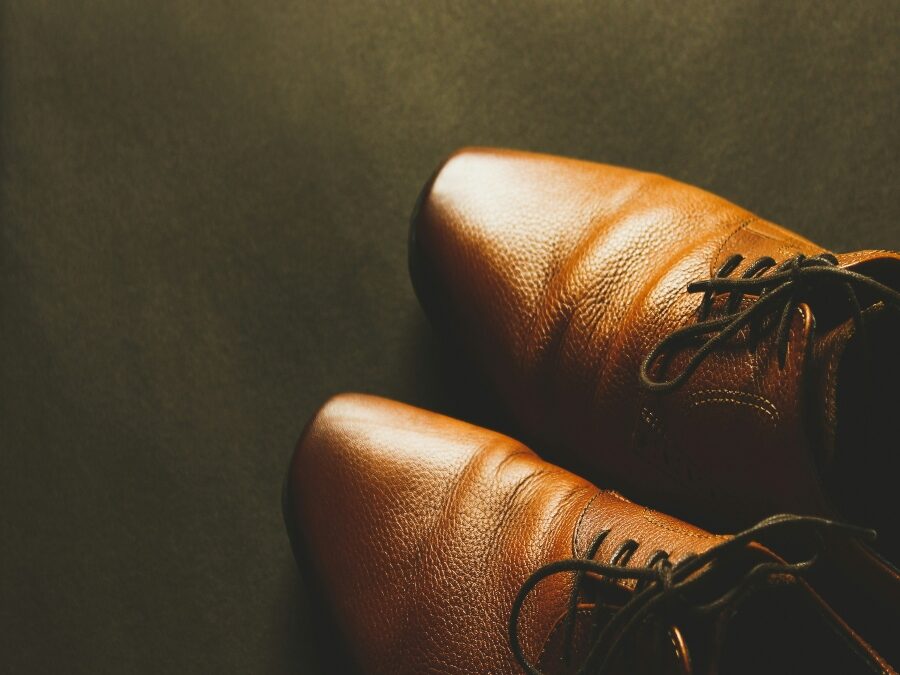
by Cheryl Pappas | Dec 16, 2024 | micro
A man with rusty brown hair, a beard, and a plaid shirt has been struggling with something in his mind, so he gets in his truck and drives fast until he gets to the top of a hill and guns it. He’s going all out, and where the cliff juts out over the water, he keeps going. He plunges into the sea.
Those at the seashore wait for his car to reemerge. But the man is now under the water in a brown suit and hat and he’s staring straight ahead. A few minutes later, the man is gone and only a brown suit and hat without a body are floating, beautifully, on the surface. A woman next to me jumps in the water, and she wants to drown, too. The suit stays just where it is.
An older man puts a beach hat on a young boy who is wearing a suit. His fine hair is wet. His whole body is wet underneath the suit. The boy doesn’t say anything. “Your hair’s just a little wet, that’s all,” the man says. The boy looks toward the sea.
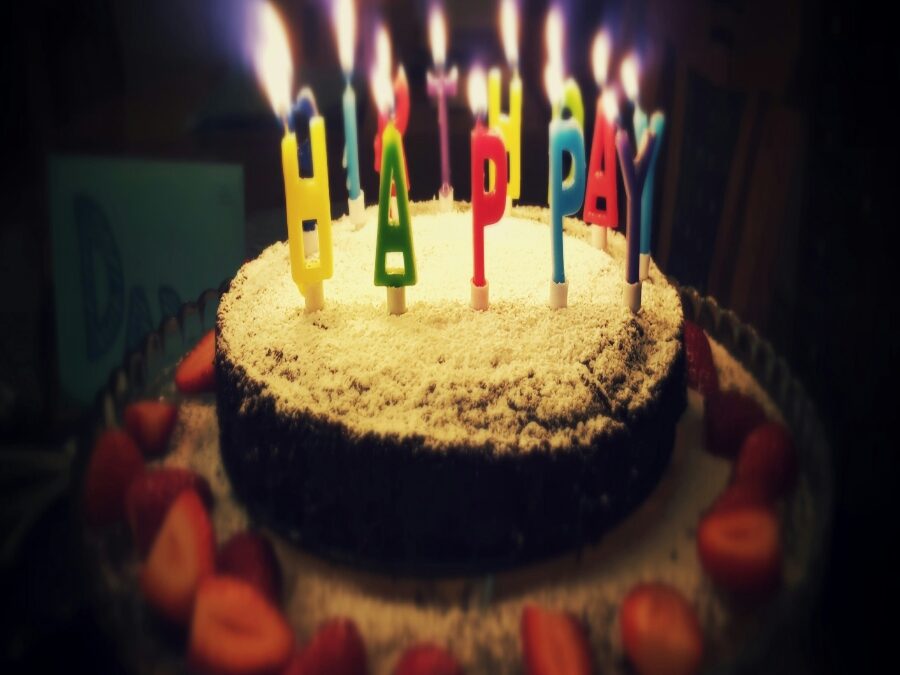
by Laura Leigh Morris | Dec 12, 2024 | flash fiction
The priest still has a mouth full of cake, crumbs stuck to his lips, when the mom presents a doll with clumps of hair missing, a book with crayon scribbled across the cover, a blanket still warm from the girl’s grip and says, “Bless them?” The girl cries for her stolen blankie, but the mom ignores her and shoves the items at him. The cake lodges in the priest’s throat, and he coughs as he makes his way through the roomful of parishioners to his car where he’s stored his Bible and a vial of holy water and blessed oil for situations like these. And when he returns, the mom has created a pile on the couch: two more dolls, four stuffed animals, a pacifier, six hats the mother uses to hide the bony protrusions on her daughter’s head. He has already laid hands on the protrusions, prayed over them, made the sign of the cross on them, and today he has baptized the little girl the woman has named Mathilde but calls Lilith, a joke, she says, from when the doctor pointed out the protrusions on the ultrasound and the parents called them horns. The mom smiled when she said this, but the priest saw her hug herself, her gaze drifting to the floor, and knows she hasn’t told anyone else about the vestigial tail they had removed after the girl’s birth. The priest touches each of the items, sprinkles holy water on them, murmurs a prayer, but as he completes the task, the mother arrives with more—a rainbow hairbrush, a pillow, a green ball. The girl, wearing a bonnet and droopy diaper, runs through the room, face smeared with icing, hands clutching lumps of cake. No one stops her. The other parishioners part as the mom returns, arms laden with more offerings: hair bows and a stack of dresses and a framed picture of Winnie the Pooh. The pile grows, and the parishioners whisper behind cupped hands as they watch the mother move more quickly, her arms piled higher each time she returns: picture books and bottles and a toothbrush and a toy car. The little girl snatches the blessed hairbrush from the couch, waves it above her head as she darts between legs and out of the room. The items waiting to be blessed spill onto the floor as the mom heaves a dollhouse atop the pile, and the room is silent, except for the priest’s murmuring. Until he steps away from the offerings and toward the mom who is weighed down with a wooden rocking horse and a toy kitchen, and he takes them from her arms and says, “Enough,” but she shakes her head, points to the coat rack, the couch, a used wine glass, says, “Bless them,” grabs his arm and pulls him into the girl’s room, gestures toward the rainbow curtains, the cross hanging above the crib, the yellow carpet, says, “Bless them,” pulls him farther down the hall, into her own bedroom, points to the unmade bed, a half-filled glass of water on the nightstand, a pile of dirty clothes on the floor, and says, “Bless. Bless. Bless,” tears in her eyes, nails digging into his arm, and the priest wants to say no but can’t, and so he blesses everything: the bathroom trashcan, the unopened mail on the counter, the parishioners who are now slipping out the front door without making eye contact, and the mom who reaches for her daughter, grabs her under her armpits, holds her out to the priest, and he blesses all of them, the mother, the daughter, the horns, the bonnet, the droopy diaper, but he spends extra time blessing the touch between mother and daughter, the mother’s fingers that grip the girl’s armpits, the outstretched arms that maintain distance between their bodies, the girl’s legs that dangle, already moving, as though running, and as soon as her mother releases her, the girl will sprint far from her mom and the priest and his water and his oil, and so he says, “Blessed be. Blessed be. Blessed be,” and watches as the girl squirms free and is gone.
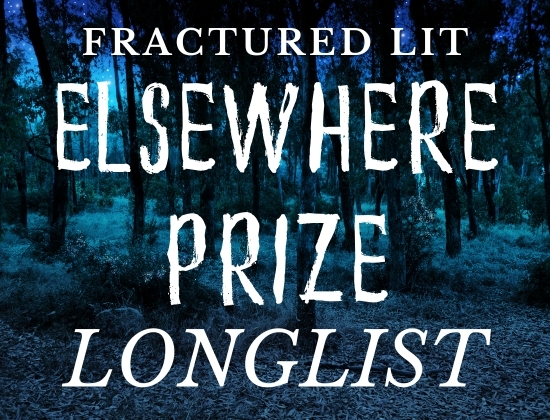
by Fractured Lit | Dec 9, 2024 | news
Congratulations to the writers of these 39 speculative stories! We’ll be back shortly with our shortlist! We can’t wait to see what Judge Tara Campbell chooses from the upcoming shortlist!
- Field with Dogs (in the Afterlife)
- Like Prey
- Naming the Cat
- A Thousand Dianes
- Short Story: A Confessional
- Marked
- All and Sundry
- Of Souls & Forests
- Crow
- Sweetie Come Brush Me
- Satan Is in a Highchair and All My Friends Are in the Wings
- Stones that Speak the Language of Trees
- Rosa
- There Is No Litigation In Fairy-Land
- A Lamb, Rising
- It Ends in Sand
- Supporting Facts
- The Boys on VIP Table 3
- Sarah K’s Green Escape
- Franklin Luggage Warehouse
- Fireworks at Dusk
- Exiled Flamingos
- Or the Highway
- Everything Inside Must One Day Be Outside, Too; Or The Dump
- Our man passes through
- A Sunset Like This
- if you go down to the woods today
- You Can Tell by Looking at Her
- Horizons
- Night Is Young
- The Marvelous Daisy-Sue, Every Sunday After Church
- The otherworlds
- The Ox and the Magpies
- Gravity on Ghosts
- The Yard
- Céline and the Sea Creatures
- A Man Will Come
- Universal
- Color of Love
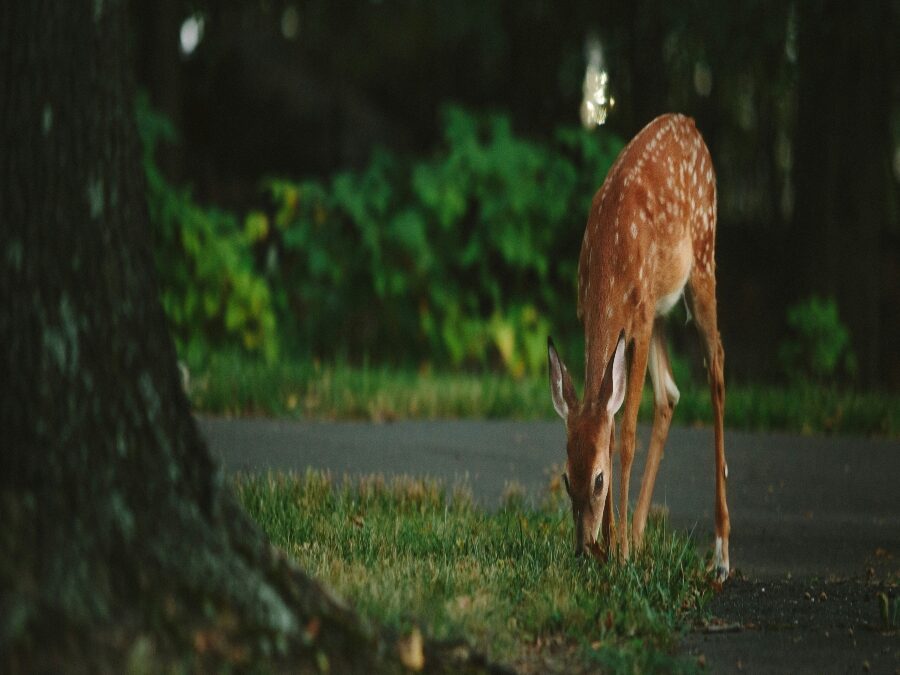
by Madeline Anthes | Dec 9, 2024 | micro
One day, there will be a podcast episode about your disappearance, and a woman driving to work will skip it because you’ve never been found, and the woman likes closure. One day, your body will dissolve, the dye in your clothes fading into a muted gray before disintegrating, your teeth you hated and wished were straighter, the only thing left to identify you. But for now, you’re in the woods, a deer eyeing you while eating leaves nearby, the dirt and blood wet and sticky under your cooling skin. For now, your last thought is, “Finally, time to rest.”
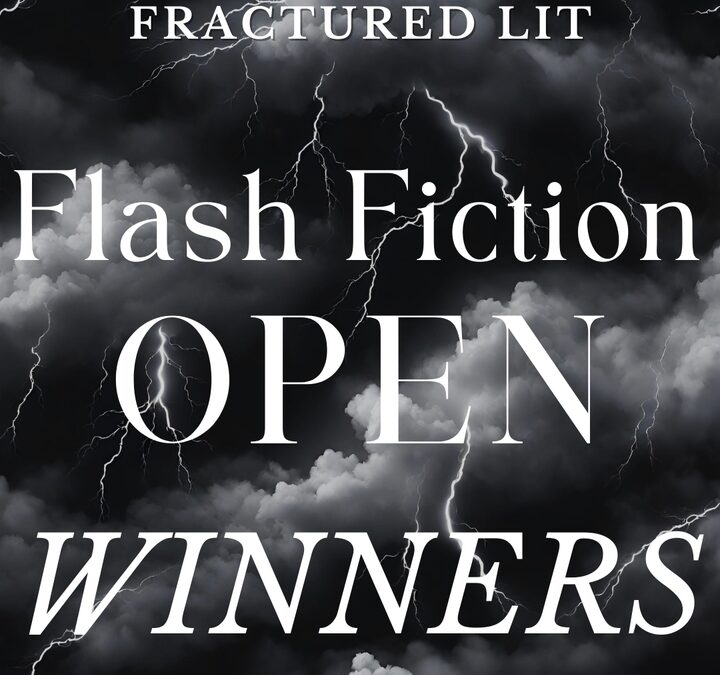
by Fractured Lit | Dec 6, 2024 | news
Guest Judge Maurice Carlos Ruffin has chosen his grand prize winner and the 16 finalists! We’re excited to publish all sixteen of these stories starting in January 2025!
Grand Prize Winner: One Minute Thirty-Five Seconds by Caleb Ludwick
Guest Judge Maurice Carlos Ruffin said, “Deftly captures a relationship in the aftermath of a life-changing moment when feelings are too big to describe. With astonishing metaphor and symbolism, this breathtaking story is grounded in true-to-life details and realistic characters. Much more than just a meditation on grief, I’ll be thinking about “One Minute Thirty-Five Seconds” for a very long time. This is what short stories are meant to do.”
- Dead Things I Gave Birth To by Michelle R. Brady
- Snow by Mary Elizabeth Dubois
- In the Path of Totality by Stephen D. Gibson
- Reel by Diane Glancy
- White Trash by Emily Hampson
- The Hunt by Kristin Jensen
- The Uranium Bird by Dennis Michael
- The Touch Forecast by Claudia Monpere
- Heartbeat by Jisun Park
- Sugar Highs & Lows by Rachana Pathak
- Sixty, Fifty-Nine, Fifty-Eight by Emily Rinkema
- Pulse by Bruce Scandling
- Gizzard by Kristen Skovsgärd
- Blood-Related by Vanessa Tamm
- Lines Left by Katie Ten Hagen
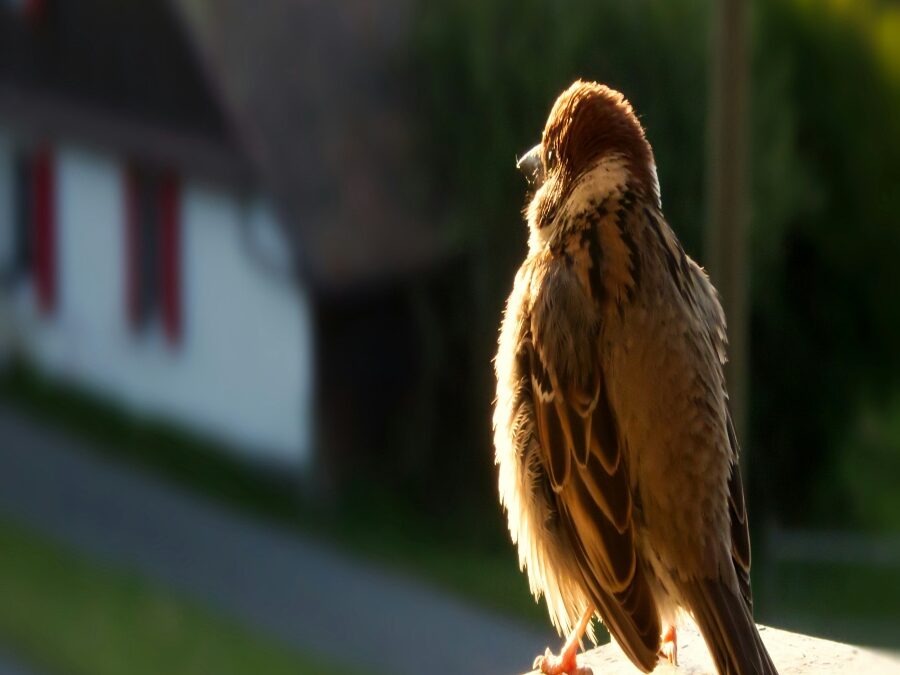
by Sarp Sozdinler | Dec 5, 2024 | flash fiction
Elena cried for the sparrow, for how it slipped a squeal before it hit the front window, a sound that awfully resembled fear. I knew even then that Elena saw something in that bird, a part of herself that wanted to be free and alive, free of everything that crippled its wings, and it was all unfortunate, not because the bird was dead, but because it still looked very much alive.
Our house was going through a transformation, shedding its skin like a snake. The door to the front porch was ajar, the bug screen opened all the way out, and a swampy, sticky warmness filled the rooms, filled our lungs. Flies, big or small, crowded around the kitchen area, punishing all the open lids. Elena was seated on the living room couch, a tube wrapped around her left arm. Our cat Oprah circled around her needle-marked feet, in wait for Elena to relinquish the dead bird like a treat.
“Pendejo,” Elena cursed under her breath.
The way she muttered the word must have done the trick, or the way she lunged her foot forward like a laggardly kick, because Oprah gave up on its mission and jumped on the sofa by the TV, its tail coiled into a full circle. The sparrow remained motionless in Elena’s hands, neck bent into an ungainly angle.
“We have to bury her,” she said, looking down, eyes puffy with either sorrow or the first kick of the drug. Or both.
When I was little, I looked after a parakeet that had the name of a dinosaur. Mom had insisted I don’t put it in a cage so Rex had the freedom of flying about in the birch woods to the north of our house all day, every day, leading a life on its own terms. I enjoyed watching Rex come and go as it pleased, until one day, it didn’t return home. For weeks to come, I cried for all the ways Rex could be hurt out in the wild or even dead. I asked Mom what would happen to the animals that strayed far from home, and she fell suspiciously quiet. We left the subject at that, never to resume.
I thought: the asteroid that ended the dinosaurs was probably the one stone that killed most birds in history.
“We have to bury her,” Elena said again, looking up at me. “Give her a sweet farewell.”
My head gave in to a small, courteous nod. I knew we had to go through what was needed to be done, together. I imagined us walking to the backyard, where we kept all the dead, frail bones of nature. I imagined us facing the trees that accommodated many a bird on their branches, their tops rustling with a soothing wind, reminding me of the times I hid in its depths to escape from all the hard truths of my childhood. Today, grounded in the hard earth of adulthood, we would have to face the side of nature we’d had to ignore all this time, all the animals we killed to eat, all the plants and herbs we plucked to enhance the smell.
We have to bury her, give her a sweet farewell.
I walked across the living room to take the dead sparrow from Elena’s hands. Giving it up, her body plopped back on the couch as if a great weight were lifted off her shoulders, setting her free. I carried the bird to the kitchen, covered it with a hand towel. I stalked to the backyard and faced the heat full-on, sans Elena, and the trees stood eerily still against my expectations, greeting me and the bird with their unmoving glare. The birds on the branches chirped their collective song, and I loved to imagine them all migrating away and pursuing their lives elsewhere, in better, more promising places than here, half-eager to move on, half not, certain that everything is going to be all right at the next stop. •
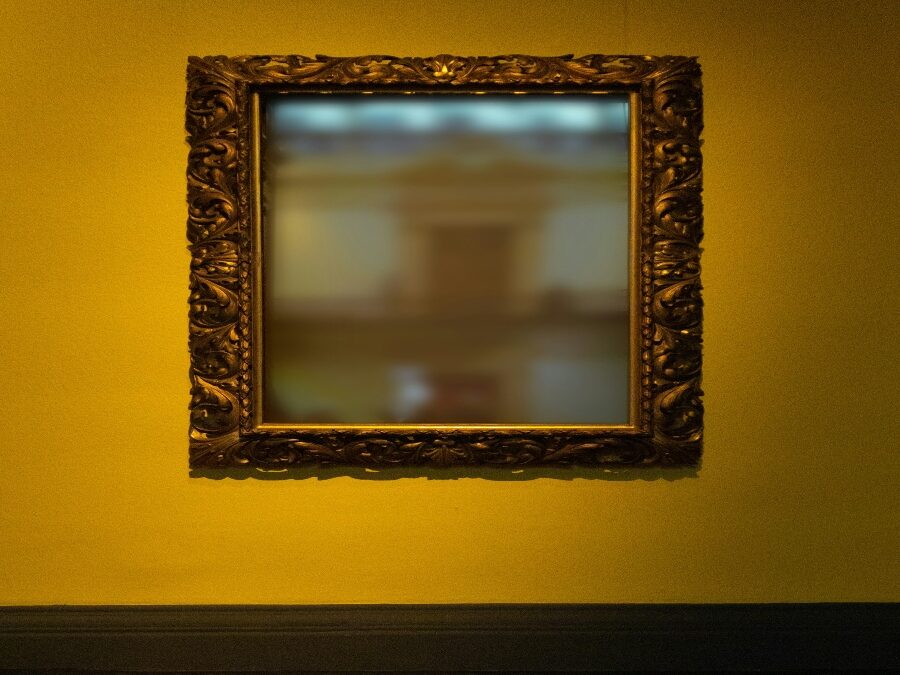
by Francine Witte | Dec 2, 2024 | micro
Not in the mirror. Not in between his uncle’s years-ago fingers. Not running all over town like Gogol. Just something he could hold in his hands for once in his life.
He tried last month to see his heart. After so many years, he wanted to see the actual scars on it, the ones that were put there by bad love and poor choices. Looley slipped a rusty Gillette down his hairy chest but couldn’t make it through. Besides, Louise was making pork chops for dinner.
Looley wants to see his nose because frankly, he doesn’t trust the mirror anymore. How it has sunk him sudden into an old man. These days all the mirror shows him is a tinsel of whiskers and a nose that has grown longer, wider.
Looley can’t help but wince when he sees this. Is it possible for a nose to grow this much in the few short years since childhood? Louise’s nose has also grown, but he understands because his wife is an old lady. He appreciates her wisdom when she says, “You don’t want to have your five-year-old nose your whole life, do you?”
But he needs to see the nose for himself, and this is the morning he is going to do it. He will look into that liar of a mirror. Maybe, I will let the razor slip. Maybe, I will hold my nose in my own hand. Maybe I will not worry anymore about my own death coming for me.

by Avitus B. Carle | Nov 25, 2024 | micro
Stepmother locks Daughter in the basement, chain keeping her prisoner to the furnace. Daughter tries to reach the window where Mother might be, watching, waiting for a kiss.
Mother is there until she isn’t. Until Stepmother pulls them apart. Until the policeman takes Mother away.
In the window, there is Mother, lips pressed to the glass, blowing Daughter a kiss.
At a gas station, Daughter cries into a bag of Doritos and tells the adult behind the counter she’s lost. He asks where’s your mother? And she gives him the only number she knows.
*
A knock at the door.
Mother in the window, a kiss left on the glass.
Daughter wants to run.
Not Mother sucks her teeth, tells daughter not to worry.
*
Daughter belongs to Stepmother now.
Father doesn’t come home.
His addictions, Stepmother says.
*
Daughter is addicted to gambling. With the tooth fairy. She tells Father over lunch. Because of Not Mother, she says. You two should divorce.
We’re getting married, says Father. Says Not Mother coming in from the kitchen with
homemade muffins from ShopRite.
*
Mother retreats into the street, as she looks towards Daughter’s window. As she blows daughter a kiss.
Daughter watches her from her bedroom window.
Mother asks Father if he’s sober.
Daughter doesn’t understand.
Father says “abuse” and “divorce.”
There’s so little Daughter understands.
Mother is at the front door, screaming.
The same fist Mother used to break Father’s nose now gives the door a heartbeat.











Recent Comments